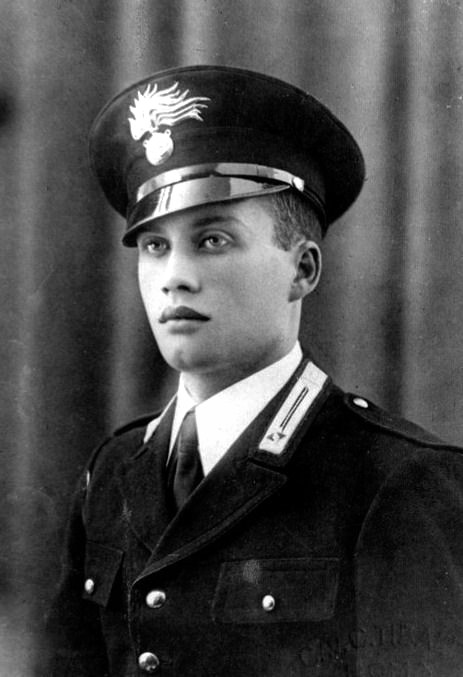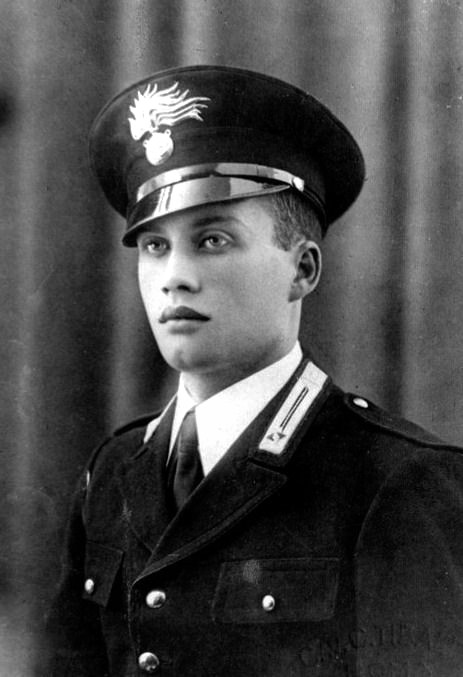
I first heard of Salvo D'Acquisto when I taught a course in a school named after him and looked up his story [Thread] >> 1
https://twitter.com/NickWhithorn/status/1308788160206430209
Salvo D'Acquisto is born into a poor family in the Vomero district of Naples on 15 October 1920, the eldest of 5 children. His father fought with the Bersaglieri in World War I & now works in an oxygen production plant, hampered by an injury suffered in an industrial accident >>2
The family is also very devout and Salvo attends schools run by the Salesians. He leaves school in 1934 and finds work in a workshop run by one of his uncle's to help out the family financially. In 1939, he is called up for military service and chooses to join the Carabinieri >>3
After training, he qualifies as a Carabiniere on 15 January 1940 and is assigned to the Rome Command. Then, in June 1940, he is transferred to the War Munitions section. In the same month Italy enters the war and, in October 1940, D'Acquisto volunteers for war service >> 4
On 15 November 1941 he sails for Libya with 608th Carabinieri Section. This section performs military police duties, guarding airfields of the "Pegaso" Air Division in the Benghazi area. He is wounded in the leg in February 1942 in an exchange of gunfire with British troops >> 5
He soon resumes active duty but in April 1942 falls seriously ill with malaria. He stays in hospital until mid-August and when discharged his commander sends him back to Italy to follow a course to obtain promotion at the Carabinieri school in Florence >> 6
He obtains his promotion in December 1942 and, despite his still low rank, is given temporary command of the Carabinieri station in Torrimpietra, near Rome (see map). It is not until July 1943, just before the fall of Mussolini, that a new Commander is appointed >> 7 
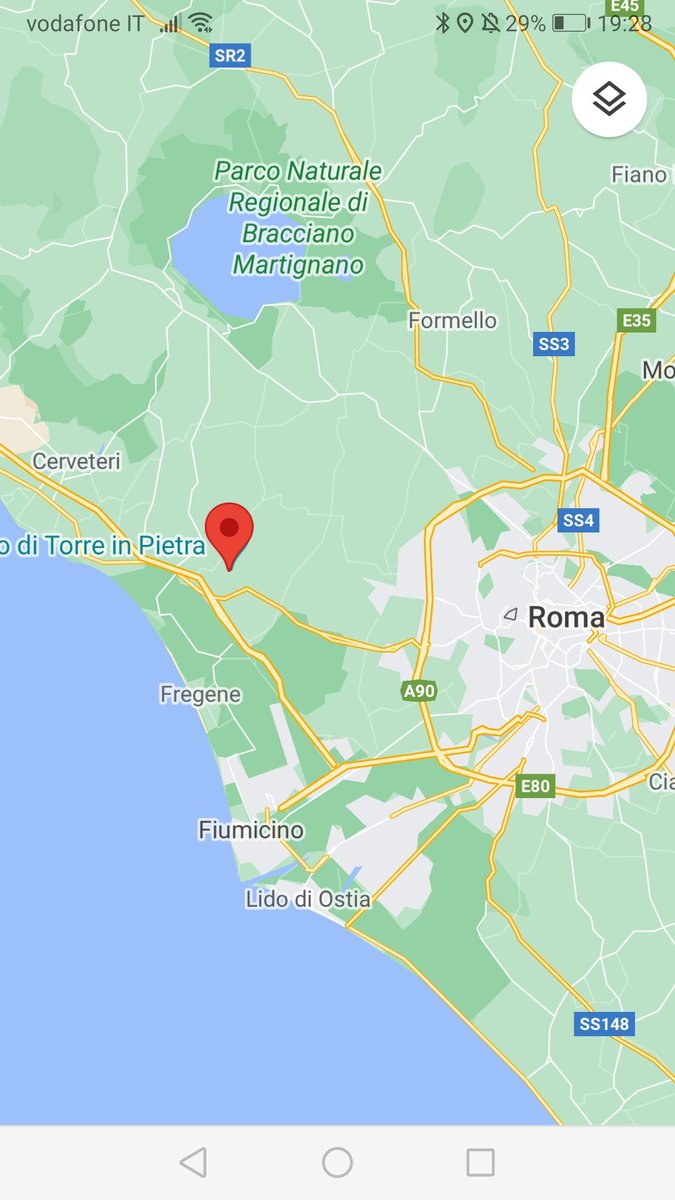
On 8 September 1943 Italy surrenders to the Allies & German troops move to occupy areas of the country not yet under Allied control. The Commander of the Torrimpietra Carabinieri station sends D'Acquisto to Rome to ask for orders on how to behave with regard to the Germans >> 8
However, as happens to many Italian units in those chaotic hours, nobody is able to give any precise orders & D'Acquisto returns to Torrimpietra empty-handed. His Commander asks him to 'hold the fort' while he goes to Rome to collect his family & move them to a safe place >> 9
In the meantime, German paratroopers have moved into the area & occupied buildings previously used by the Italian Guardia di Finanza in the locality known as Torre di Palidoro on the coast (see map), which falls under the jurisdiction of Torrimpietra Carabinieri station >> 10 
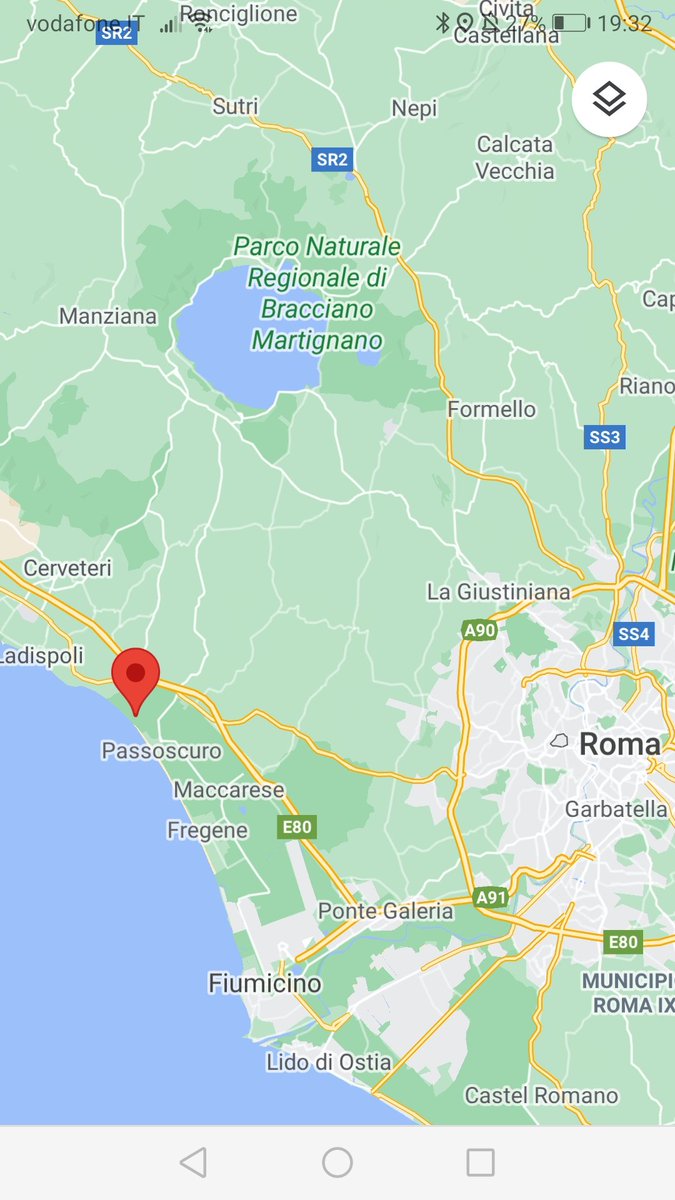
In the meantime, German paratroopers have moved into the area & occupied buildings previously used by the Italian Guardia di Finanza in the locality known as Torre di Palidoro on the coast (see map), which falls under the jurisdiction of Torrimpietra Carabinieri station >> 10 
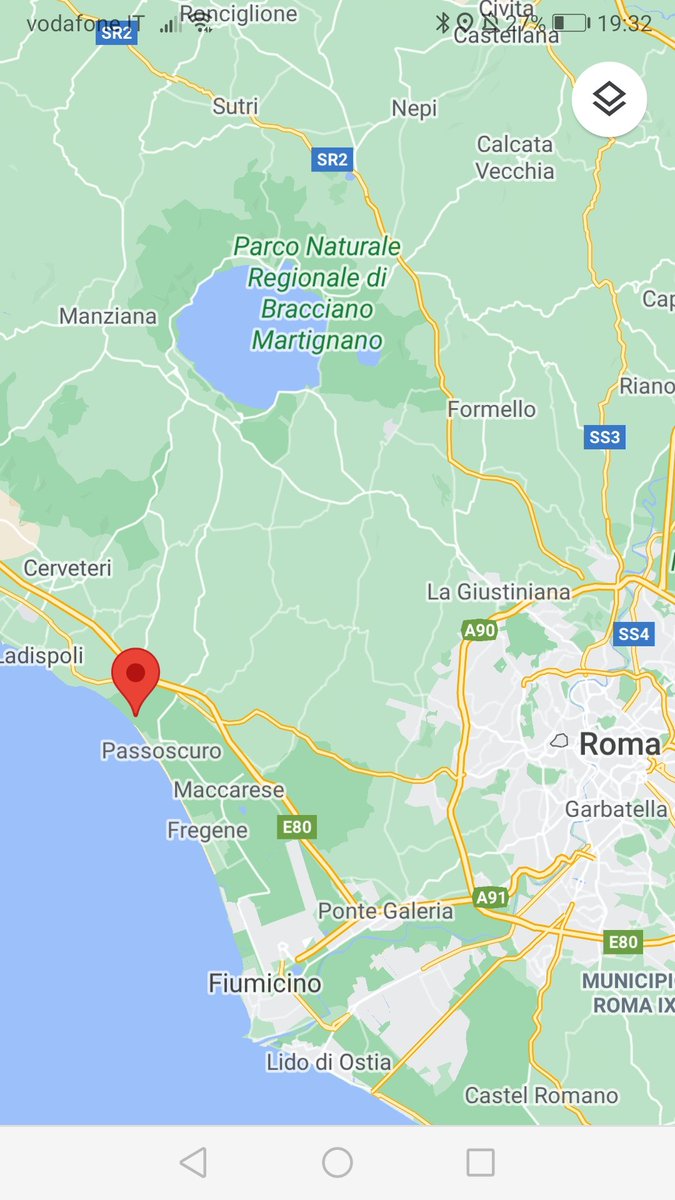
On 22 September 1943, while D'Acquisto's Commander is still absent, an explosion occurs in one of the buildings at Torre di Palidoro, killing two German paratroopers & wounding two others. The Commander of the paratroopers insists that D'Acquisto investigate the explosion >> 11
The German Commander attributes the blast to "partisans" among the local population but D'Acquisto quickly establishes that the Germans were handling grenades that had probably been confiscated by the Guardia di Finanza from illegal fishermen. The explosion was accidental >> 12
The German Commander has threatened reprisals against the population if the culprit is not identified by dawn next day. When D'Acquisto reports his findings that the explosion was accidental, the German Commander angrily refuses to accept it & orders a roundup of civilians >> 13
The German paratroopers spend the morning of 23 September rounding up 22 men for execution. The youngest is a boy of just 13. One man is shot & killed when he tries to escape capture. They are brought to main square in Polidoro, as is Salvo D'Acquisto >> 14
The Germans go through the sham of forcing Salvo D'Acquisto to interrogate all the men who, naturally, deny any involvement in or knowledge of the explosion. They are all loaded into a truck & taken to Torre di Palidoro, where they are forced to dig a mass grave >> 15
Some are given shovels, others are forced to dig with their hands. Salvo D'Acquisto is held separate from the others, continually questioned & often beaten. According to witnesses, he maintains his composure & repeats that the explosion was an accident and nobody is to blame>> 16
When the grave is dug, it is clear that the Germans intend to go through with their threat. At this point, Salvo D'Acquisto steps forward and, speaking to the German Commander, claims responsibility for the explosion, insisting that all 22 men are innocent & should be freed >> 17
The men are let go and gratefully run from the scene, mainly unaware of the reason why they are being spared. When they are out of sight, they hear a cry of "Viva l'Italia", followed by a burst of machine gun fire >> 18
On 22 September 1943, while D'Acquisto's Commander is still absent, an explosion occurs in one of the buildings at Torre di Palidoro, killing two German paratroopers & wounding two others. The Commander of the paratroopers insists that D'Acquisto investigate the explosion >> 11
The German Commander attributes the blast to "partisans" among the local population but D'Acquisto quickly establishes that the Germans were handling grenades that had probably been confiscated by the Guardia di Finanza from illegal fishermen. The explosion was accidental >> 12
The German Commander has threatened reprisals against the population if the culprit is not identified by dawn next day. When D'Acquisto reports his findings that the explosion was accidental, the German Commander angrily refuses to accept it & orders a roundup of civilians >> 13
The German paratroopers spend the morning of 23 September rounding up 22 men for execution. The youngest is a boy of just 13. One man is shot & killed when he tries to escape capture. They are brought to main square in Polidoro, as is Salvo D'Acquisto >> 14
The Germans go through the sham of forcing Salvo D'Acquisto to interrogate all the men who, naturally, deny any involvement in or knowledge of the explosion. They are all loaded into a truck & taken to Torre di Palidoro, where they are forced to dig a mass grave >> 15
Some are given shovels, others are forced to dig with their hands. Salvo D'Acquisto is held separate from the others, continually questioned & often beaten. According to witnesses, he maintains his composure & repeats that the explosion was an accident and nobody is to blame>> 16
When the grave is dug, it is clear that the Germans intend to go through with their threat. At this point, Salvo D'Acquisto steps forward and, speaking to the German Commander, claims responsibility for the explosion, insisting that all 22 men are innocent & should be freed >> 17
The men are let go and gratefully run from the scene, mainly unaware of the reason why they are being spared. When they are out of sight, they hear a cry of "Viva l'Italia", followed by a burst of machine gun fire >> 18
• • •
Missing some Tweet in this thread? You can try to
force a refresh

